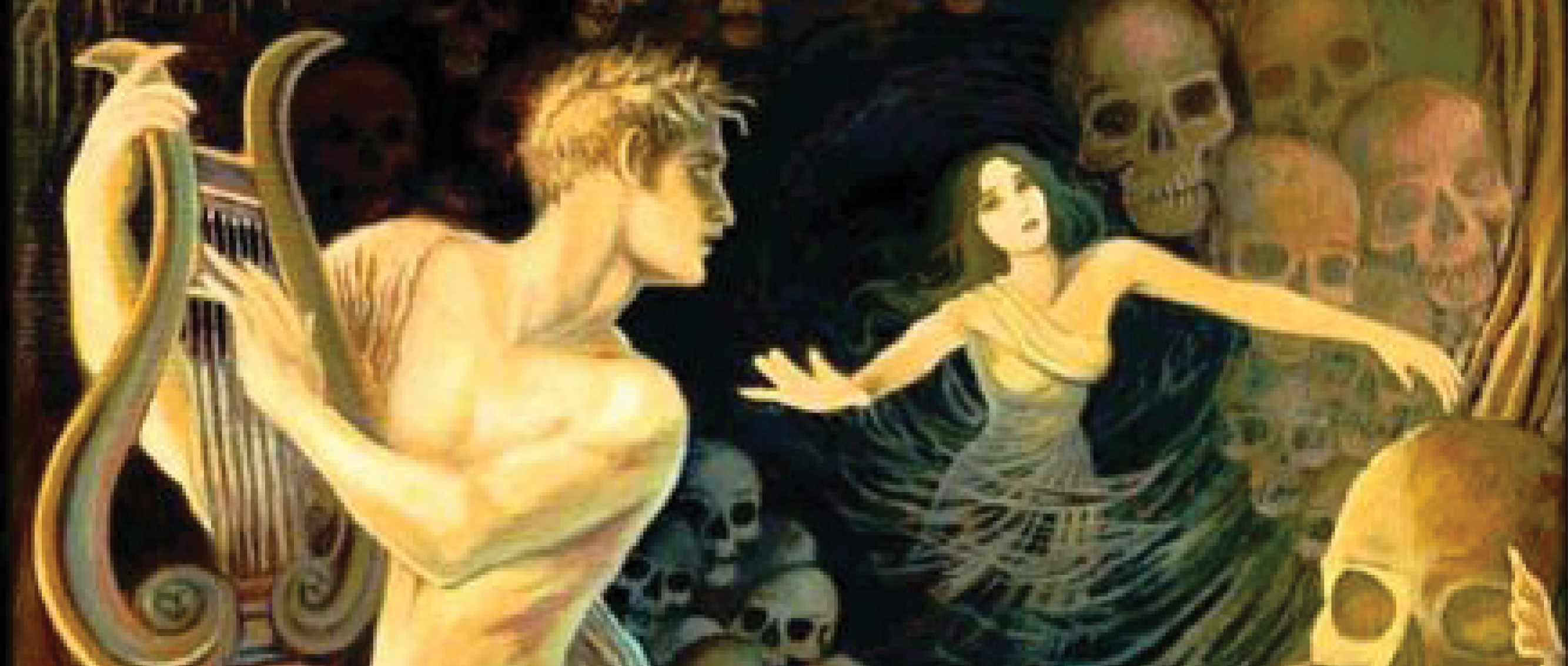Cross-listed with RMST 454
Eros Unbound: The Ecology of Love at the Edge of Modernity

Orpheus and Eurydice, © Emily Balivet 2012
Is there such a thing as an “ecology of love”? The short answer is: “yes”; the long answer is: “we may have forgotten almost all about it.” Can we retrieve the memory of that ecology, and thus free love from its fetters, so as to reclaim truer bonds: bonds that make us free, rather than imprison us?
The stories of Eros and Psyche; Echo and Narcissus; Orpheus and Eurydice; Persephone, Demeter and Hades are myths that have guided the Western mind through the millennia in its renewed attempts to grapple with the mysteries of love, life, death. These stories informed the poetics of countless verbal and visual expressions of union and separation, particularly at the time when European societies were transitioning into “modernity” – ‘modernity’ being perhaps the most separative experiment ever undertaken by humanity in its yearning for freedom from ‘the environment,’ and from all bonds. How do these myths address the bonding of relationship and its severing? How did these myths get inflected over time, in order to warn, or disguise, or negate that tragic severing of the erotic, nurturing bond between feminine and masculine, the living earth and its human inhabitants, between psyche (soul)-body, and mind?
This course will retrace both the endorsed and the rejected reading of these myths, which have been central to the formation (and loss) of an “ecology of love” in the ancient, pre-modern and modern worlds. We will explore how these primordial images of eros have contributed to shaping our understanding of the relationship between the human psyche and its environment. We will take an especially close look at the poetics of desire and the dynamics of power in the cultures of the pre-modern Mediterranean and Romance cultures, and of Renaissance Italy.
These narratives that teach us of the cosmic power of eros are as alive, and worthy of attention, today, as they were in past ages, hence we will complement our rediscovery of their ancient, medieval and early modern re-creations with contemporary literature that probes their meaning for our times, at the intersection of psychology, ecology, and the arts.
Required readings:
- Bedier, The Romance of Tristan and Iseut. Hackett 2013. 978-1603849005
- The Romance of the Rose (excerpts in pdf)
- Dante Alighieri, The New Life, tr. S. Applebaum. Dover 2006. 978-0486453491
- Other texts will be provided in pdf via Canvas.
Language of instruction: English
Prerequisites: No prerequisites
Note: Credit will be granted for only one of RMST 454, ITST 414 or ITAL 404.